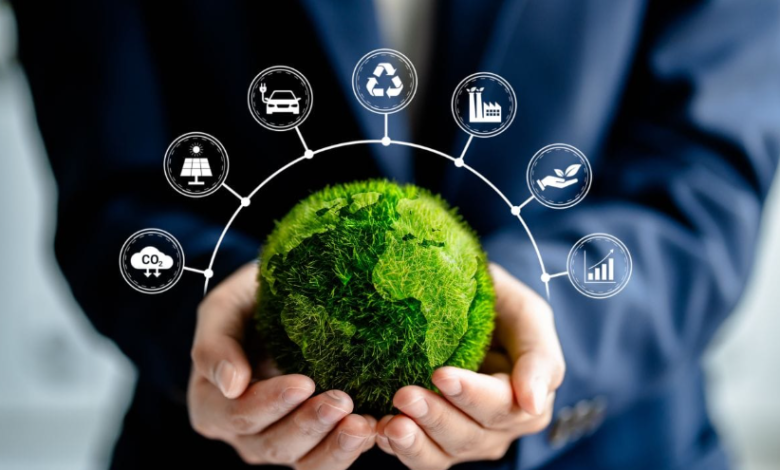Sustainability Consulting in Australia: Moving from Compliance to Competitive Advantage

In Australia’s changing regulatory and commercial landscape, sustainability has evolved from being just a catchphrase to a crucial business consideration. With more organizations striving to enhance their environmental and social footprint, the function of sustainability consulting firms is changing even more. The old model where consultants came in “to do a report or tick a box for compliance” is gone. Today’s sustainability consulting in Australia focuses on measurable impact, transformational change, and strategic foresight for enduring business resilience.
Because of this change, both consultants and businesses have to rethink their approaches to collaboration. “Environment” or “community engagement” cannot be the domains where sustainability is placed and forgotten. It now needs to be integrated into procurement, governance, operations, and even digital change. For companies in Australia, there now exists both a challenge and a unique opportunity for standing out in the marketplace.
The Changing Responsibilities of Sustainability Consulting Firms
Sustainability consulting firms in Australia now have a wider scope than just a technical advisor. They have now become strategic partners in assisting organisations in navigating the following circumstances:
Disclosures of climate risk under the ASX and TCFD-aligned frameworks
Modern slavery reporting compliance
Circular economy objectives on the state level
Roadmaps for the net zero transition and adoption of renewable energy sources
Scrutiny from investors and customers on ESG metrics
The best consulting firms do not only interpret these changes. They implement them in a way that is practical and beneficial to the business. This means assisting clients in taking the most impactful actions, monetizing sustainability, and achieving core business value.
Increased Regulation and Investor Pressure
Australian regulators are on the offensive. The Government’s Climate Disclosure Framework and ASIC’s heightened scrutiny of greenwashing is creating an compliance driven need for better governance. At the same time, institutional and individual investors are demanding escalated governance as a prerequisite to investment.
This is the area where sustainability consultants can have the greatest impact; not just drafting MVP policy documents and dashboards, but embedding governance, risk, and assurance frameworks that would withstand regulatory and financial scrutiny.
Looking ahead, leading firms are already preparing their clients for prospective regulations. Be it evolving biodiversity laws, PFAS restrictions, or even mandatory sustainability ratings for supply chains, consultants are essential to help businesses plan for the future, not just react to it.
See also: Precision Restored: Expert Technicians, Top-Tier Components for your phones
From a Cost Centre to a Value Generator
Australia’s sustainability consultants are leading the charge with businesses by changing the dialogue to “overhead no longer applies,” with the rise of “overhead no longer applies,”. Thus far, value creation includes:
Capture the savings associated with improved energy efficiency, waste reduction, and sustainable procurement.
Winning contracts through verified ESG (Environmental, Social, and Corporate Governance) credentials, particularly in government and defense contracting.
Access to funding, such as green finance, ESG-linked loans, or carbon credit markets.
The consultant for sustainability has become a critical player within the fields of risk management, business development, and investor relations. Through the use of sustainable frameworks, impactful business strategies are being developed.
Addressing Regional Differences and Sector-Specific Requirements
Given the geographic characteristics and industrial diversity of Australia, a standardized plan for sustainability cannot be applied. The environmental footprint, regulatory concerns, and stakeholder expectations of a Western Australia based mining business, a regional New South Wales based agribusiness, and Melbourne’s tech start up are drastically different.
Australia’s leading sustainability consulting firms are balancing national guidelines such as the National Greenhouse and Energy Reporting Scheme (NGER) with regional considerations like water usage, biodiversity offsets, and indigenous land use protocols.
Consultants are also integrating different sectors—linking agriculture with carbon trading, construction with embodied carbon tools, and retail with circular economy logistics. These insights foster greater collaboration and provide more holistic solutions.
The Digital Integration Imperative
The newest trend in sustainability consulting focuses on the integration of ESG software platforms, AI tools, and data analytics. Clients are no longer satisfied with static reports; they require real-time tracking, scenario modeling, and predictive analytics. Both sustainability consultants and clients have evolving needs, resulting in a demand for a combination of technical knowledge, systems thinking, and digital mastery.
Consulting firms that have integrated these changes are still relevant while diversifying into long-term ESG performance monitoring, which permits clients to progress privately and adapt transparent, sustainable changes with flexibility, enabling continuous growth.
Final Thought: Supporting Clients as Drivers of Organizational Change
The leading firms enable clients to reimagine supply chains, implement energy transitions, augment brand equity, and create a net positive impact on the society and the environment.
Climate-friendly economy practices have shifted sustainability consultants from “advisors at the edge” to being integral to strategic business frameworks, resilience, and profitability. Companies all over Australia now face the issue of not deciding to invest in sustainability, but how to partner with the right consultant to gain a competitive edge.





